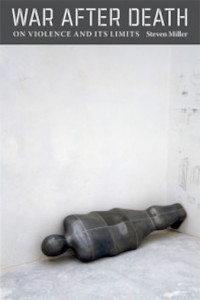 On Violence and Its Limits
On Violence and Its Limits
Reports of killing often dictate attention and popular accounts, but other forms of violence predominate the narrative of warfare. Death is only part of the story; war invariably involves attacks on “the built environment, ecosystems, personal property, artworks, archives, and intangible traditions.” While these may not always pose a direct threat to human lives, author Steven Miller argues that destruction of both the human and nonhuman occupies a significant dimension of all violence. War After Death explores how the language and practice of war change in light of this dimension and offers an alternative interpretation of psychoanalytic responses to war and death.
Emory University’s Elissa Marder reviews:
“Steven Miller’s book War After Death is a truly impressive piece of critical writing. Indeed, this book is one of the most intellectually rich, trenchant and engaging works of criticism that I have read over the last decade.”
Gil Anidjar of Columbia University writes:
“In the long tradition and ever growing sea of works that have linked ‘language, literature, and war,’ this is a strikingly original work that attends to the import of that phrase with exquisite responsibility.”
For more information on this book, click here.
Fellow travelers are scholars, activists, and practitioners that embody the ideals and commitments of the Project on Lived Theology. We admire their work and are grateful to be walking alongside them in the development and dissemination of Lived Theology.
